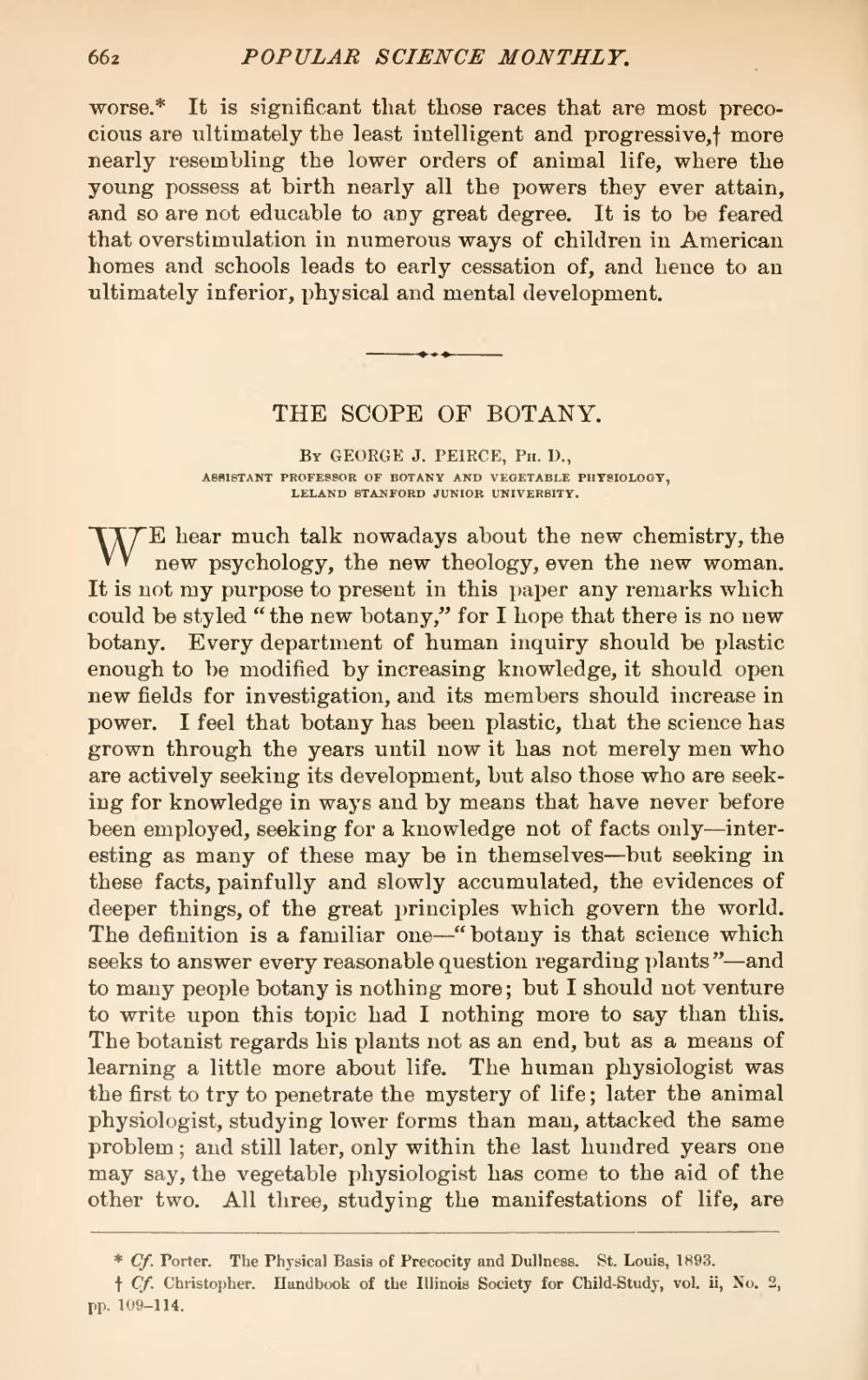worse.[1] It is significant that those races that are most precocious are ultimately the least intelligent and progressive,[2] more nearly resembling the lower orders of animal life, where the young possess at birth nearly all the powers they ever attain, and so are not educable to any great degree. It is to be feared that overstimulation in numerous ways of children in American homes and schools leads to early cessation of, and hence to an ultimately inferior, physical and mental development.
| THE SCOPE OF BOTANY. |
By GEORGE J. PEIRCE, Ph. D.,
ASSISTANT PROFESSOR OF BOTANY AND VEGETABLE PHYSIOLOGY, LELAND STANFORD JUNIOR UNIVERSITY.
WE hear much talk nowadays about the new chemistry, the new psychology, the new theology, even the new woman. It is not my purpose to present in this paper any remarks which could be styled "the new botany," for I hope that there is no new botany. Every department of human inquiry should be plastic enough to be modified by increasing knowledge, it should open new fields for investigation, and its members should increase in power. I feel that botany has been plastic, that the science has grown through the years until now it has not merely men who are actively seeking its development, but also those who are seeking for knowledge in ways and by means that have never before been employed, seeking for a knowledge not of facts only—interesting as many of these may be in themselves—but seeking in these facts, painfully and slowly accumulated, the evidences of deeper things, of the great principles which govern the world. The definition is a familiar one—"botany is that science which seeks to answer every reasonable question regarding plants"—and to many people botany is nothing more; but I should not venture to write upon this topic had I nothing more to say than this. The botanist regards his plants not as an end, but as a means of learning a little more about life. The human physiologist was the first to try to penetrate the mystery of life; later the animal physiologist, studying lower forms than man, attacked the same problem; and still later, only within the last hundred years one may say, the vegetable physiologist has come to the aid of the other two. All three, studying the manifestations of life, are

